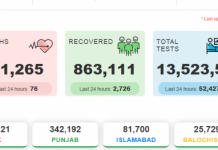Snatching moments of clarity through the brain fog that was among the lingering symptoms of her coronavirus infection, Hannah Davis joined a team of similarly ill researchers and launched a study of what is now called “long Covid”.
The survey was initially “for ourselves, to understand what was happening with our own bodies”, Davis said. But with so little data available, it was soon informing global policymakers.
Davis is part of an international patient-led movement of people who, when they were struck down with unexplained, debilitating symptoms, developed social media networks, research and advocacy from their sick beds.
The 32-year-old likens her neurological symptoms to a “brain injury” that meant she could not drive for months and was barely able to look at a screen.
But she said the online community and her work with Patient-led Research for Covid-19 — led by a team of five people who have never met in person — has been “awe-inspiring”.
“I really don’t think that I’ve ever done any work that has been nearly as meaningful,” said Davis, who specialises in machine learning and AI, whose group is working on a new study supported by University College London.
We now know that the novel coronavirus, which has killed at least 1.4 million globally, can leave even otherwise-healthy young people with lingering symptoms.
“To a significant number of people, this virus poses a range of serious long-term effects,” World Health Organisation director general Tedros Adhanom Ghebreyesus said in October.
He listed fatigue and neurological symptoms as well as inflammation and injury of major organs — including the lungs and heart.
Fatigue and brain fog
But in the early days of the pandemic most people believed that infection would either result in hospitalisation, or a “mild” respiratory illness that would pass in around two weeks.
Soon thousands of people were turning to social media, desperate to understand why they were not getting better.














